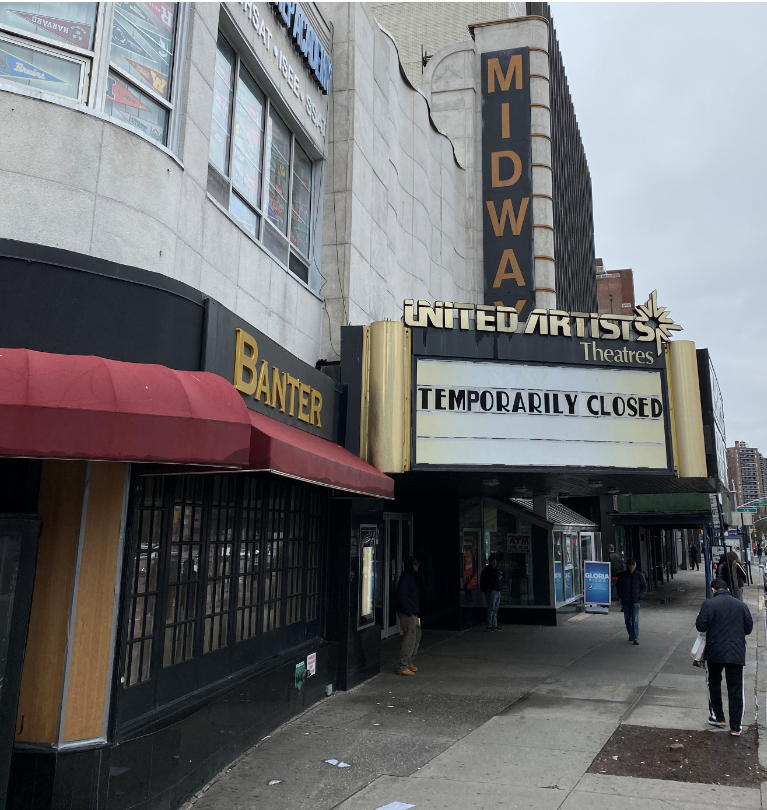
Now over one year since the COVID-19 lockdown began, much has certainly changed. Looking back on a year of change for Townsend Harris students, we can’t help but think of the losses so many have suffered, while still recognizing the resilience and hope out there. It feels like a lifetime since our in-person Festival of Nations, a celebration of the diversity in the THHS community that is a highlight of the year for many students. Last year’s event served as one of the last times students, faculty, and families joined together before the shutdown.
As FON aims to celebrate many of the cultures represented within the THHS student body, now is a time to also reflect on how we all also come from different parts of New York City.
Though The Classic usually tells the stories of what occurs within the halls of Townsend Harris, those halls have expanded well beyond Melbourne Avenue in the past year as our city became the epicenter of this global pandemic. And so, we are beginning a series of articles meant to highlight the various pockets of the city that our student body has taken refuge in since March 2020. Our first story is about Forest Hills, and how a graduate of Townsend Harris worked with a number of friends to help preserve the once thriving food culture at the heart of the community.
Forest Hills receives an unexpected boost from local group Support Forest Hills Eateries
By Ryan Eng, Managing Editor
Last April, lifelong Forest Hills resident Anupama Pattarbiraman was shocked by the number of stores in her neighbourhood that had shut down, reduced their hours, or became overwhelmed in endless restrictions. Along the once-bustling commercial centers of Austin Street and Metropolitan Avenue, coffee shops, dessert spots, burger places, and bars seemed largely desolate. Although initiatives to help small businesses were launching at the national, state, and city levels, Ms. Pattarbiraman wanted to set up something similar for Forest Hills.
She got in touch with Christy Sue, a 2015 graduate of Townsend Harris and college friend. Ms. Sue would then introduce computer scientist Andrew Goh to the group and later Nancy Shrethsa, a friend of hers from middle school. Ms. Sue said that she felt helpless watching the pandemic turn Metropolitan Avenue into a “ghost town.” To figure out how they might be able to help, the group went door to door to talk with shop owners about how they were coping. Most restaurants were struggling with making the transition to outdoor dining and competing with third party delivery services such as Grubhub and UberEats. They also discovered that many local businesses did not have a significant online presence pre-pandemic, relying instead on word-of-mouth and walk-in traffic.
They created a website and social media account called Support Forest Hills Eateries. Mr. Goh, the website developer, accumulated menus, deals, and delivery services from 130 restaurants, and wanted to feature this information on an easy-to-browse platform. They felt the website could provide restaurants the online presence they needed and encourage residents to shop locally. But they soon realized it could also give residents the chance to donate directly to local businesses.
Since then, their website and Instagram account have updated residents through regular newsletters, coordinated community panels with businesses, promoted several fundraiser events, and featured different signature dishes from restaurants. Most recently, the organization promoted Restaurant Week participants Bareburger, Portofino, London Lennie’s and Guantanamera, and began publishing their own weekly Q&As with restaurant owners. In addition, they have expanded their efforts beyond promoting different businesses by adding resources on relief application opportunities and ways to support Black Owned businesses to their website. Their website and work has been featured by the Queen’s Gazette.
Along the way, they have promoted White Radish, an American farm sourced style kitchen that opened this summer on the edge of Austin Street and residential homes of Forest Hills. Paul Singh and David Vedda, owner and manager respectively of White Radish, remain optimistic despite the challenges of the pandemic.
But he also explained that the current dining situation is a “far cry to what’s needed for a restaurant to survive,” as even under full capacity, the average revenue for restaurants is only 10 to 15 percent above their expenses.
The organization gained recognition from other local organizations such as The Reform Temple of Forest Hills, which introduced to them a new opportunity: feeding those in need with meals purchased from local restaurants.
Last August, with the aid of the Synagogue, the organization was able to raise money to purchase 200 meals from the restaurant Mojo. They then distributed the meals to the Corona Seventh-Day Adventist Church, a partner of the reform temple. Last September and December, the organization continued this initiative by purchasing meals from restaurants Amar Peruvian and Pahal Zan for soup kitchen Masbia and the Briarwood residence.
“Food pantries had a hard time feeding everyone who would come through. At the Corona SDA, they had so many people every single week. It was at a point where we also wanted to do something more,” said Ms. Sue.
“Restaurants are asked and want to make donations, but a lot of them aren’t in the position to do that now, especially with the revenue streams. It’s a win-win for community members, who help their community through donations to food pantries, and also for the restaurants,” said Ms. Pattabiraman.
Overall, despite being a humble operation, Support Forest Hills Eateries has become a source of information and learning for its residents.
Ms. Shrestha, resident of nearby community Rego Park, admitted that she rarely visited or looked at the local restaurants that she would pass on the way to work, some of which were her neighbors, prior to the pandemic. But after contracting Covid-19 in early March and taking two months to recover, it opened her eyes to the struggles of others during the pandemic, and how she could contribute more. “It’s about being together as a community, supporting each other in tough times, and learning to accept unexpected changes along the way. With the rapid changes coming in 2021, we are hoping that the restaurant business can rebuild to the thriving economy that it once was and more,” she said.
“We are all hoping for greater awareness of all the hurdles that small businesses encounter in becoming successful. Government policies should reflect this understanding and work harder to support them as they are the part of the bread and butter of the City,” said Ms. Sue. Recalling the oath she swore at THHS, she said “during these times, I think that it’s important to be able to ‘leave your City greater than you found it.’”





























